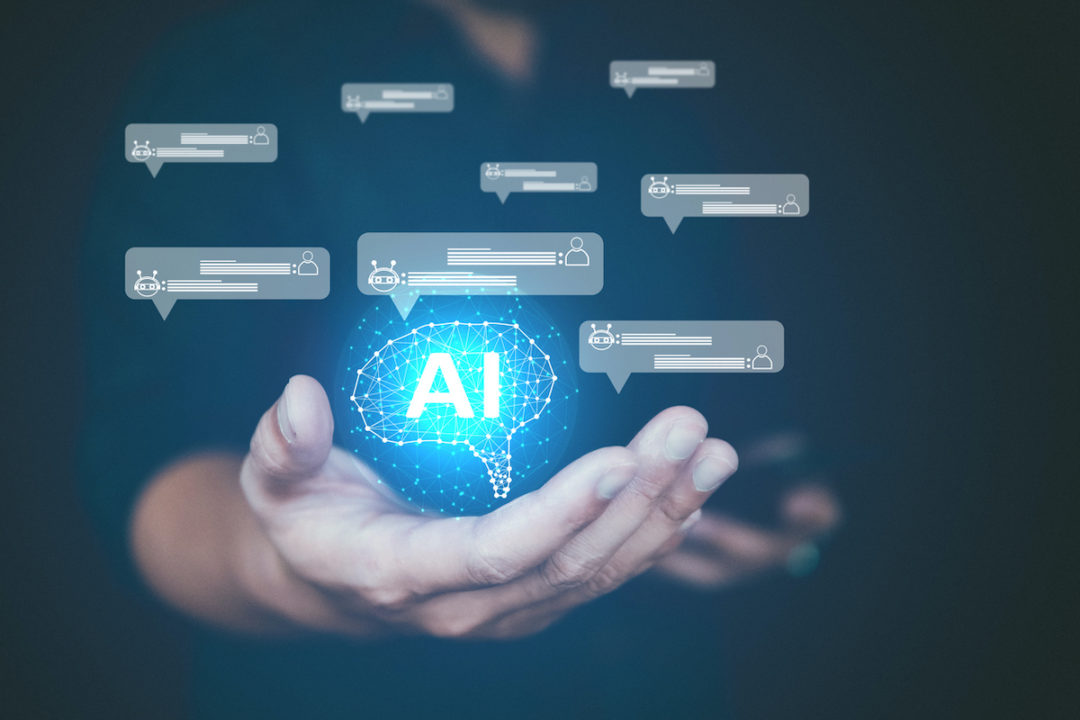
Visit Our Sponsors |
|
|
|
|
|
|
|
|
|
|
|
|
|
|
|
|
|
|
|
|
|
|
|
|
|
|
|
|
|
|
|
|
|
|
|
|
|
|

Photo: iStock.com/Kenstocker
The last couple of years have brought huge advances in the application of artificial intelligence to businesses generally, and the supply chain in particular. But that’s nothing compared with what’s coming in 2025 and beyond, industry experts say.
Generative AI, delivered in such popular forms at ChatGPT and employing large language models (LLMs), is among the buzzwords to have dominated recent conversations about the fast-developing technology. In supply chain, however, all the talk today is about AI-driven autonomous operations, removing the need for human intervention in key decision-making.
Hardik Chawla, senior product manager-technical with Amazon.com, defines it as “end-to-end process automation — completely hands-off.” Others might prefer the catchier term “self-driving supply chain.” Regardless of how it’s described, however, modern-day AI is promising to bring a whole new level of automation and efficiency to supply chains in the coming months and years.
Procurement is especially ripe for the concept, says Chawla, with AI selecting which supplier is most capable of fulfilling a given order, then optimizing for production lead times and desired inventory levels.
AI also takes over the selection of carriers for transportation of raw materials, parts, assemblies and finished goods, with the ability to change routing on the fly in accordance with unanticipated events such as extreme weather, labor actions and a host of other supply chain disruptions.
Not so fast, though. Chawla calls that “a vision of the future — it’s happening in segments.” Successful early applications include the tracking of shipments in transit, and suggesting any necessary changes. Procurement, he says, is less advanced in adopting the cutting-edge technology.
The key to development of autonomous supply chains lies in the application of agentic AI — advanced systems that act as independent “agents” to solve particular problems or achieve certain goals, without human guidance. That might entail the coordination of multiple software systems or applications, says Justin Newell, chief executive officer of Inform, a software developer using AI and advanced mathematics to optimize business processes.
An operation running agentic AI might allow the system to go beyond mere recommendations and take independent action in choosing, say, the optimal routing among several options, Newell says. Meanwhile, at the Port of Los Angeles, agentic AI is already directing which crane should pick up a given container, and where the box should be placed among the stacks to ensure the easiest possible retrieval.
“Companies will strategically integrate AI into mission-critical processes, such as logistics or manufacturing, to improve quality and optimize workflows,” according to a recent report by Inform. “This is where the true, yet untapped potential of business AI applications lies.”
Slavena Hristova, director of product marketing with ABBYY, a provider of intelligent document processing, says AI-driven automation will be “crucial” in streamlining complex processes such as inventory management, route optimization and warehouse operations, aided by advances in GenAI and machine learning. “These efficiency gains will help businesses counter tight margins while enhancing agility and service levels in an increasingly demanding market,” she says.
Hristova cites recent research estimating that AI has the potential to reduce supply chain and logistics costs by 15% through process optimization. In transportation, however, larger providers tend to be further ahead in adopting the technology. They’re picking some low-hanging fruit: Hristova says the industry “is still shocked by how much paper documentation is still required. The big ones are pushing for [digitized] bills of lading, while smaller ones are still doing things quite manually.”
Newell adds that AI is likely to be “heavily embedded” into systems by companies that are already staffed with experts in the technology. They’re best positioned to deploy AI for “decision intelligence,” to the point where 60% to 80% of actions are being taken without the need for approval by human planners. One might think of such capability as a modern version of “expert systems,” an early manifestation of AI that sought to draw on, and automate, the accumulated knowledge of experienced humans.
Beyond day-to-day applications, Hristova says, AI provides a bigger picture that allows companies “to understand your processes, view them as a whole, and find where the bottlenecks are.”
In the coming year, Chawla says, companies will increasingly turn to AI as a means of boosting supply chain resilience. That means focusing on real-time visibility of production and logistics across partners, with a particular eye on smoking out any defects or exceptions in the process, and acting accordingly.
Hristova says 2025 will see more companies “realizing that they need clean and well-structured data to do what they want. Having AI-ready data will be very important,” especially information that’s generated by legacy systems that haven’t been able to interact with state-of-the-art applications built on AI.
Newell predicts that companies will increasingly adopt software-as-a-service (SaaS) applications, in a bid to integrate multiple processes and technologies throughout the organization. AI can help with that, too.
What the immediate future won’t see is the elimination of humans from supply chain decision-making and management altogether. “It will be a world where people will have to upskill to be well-versed in AI,” Chawla says, with AI focusing on automating “simple routine stuff.”
Newell acknowledges that autonomous supply chains, driven by AI, will result in a long-term reduction in the number of human planners. “But we’re not looking to remove people from their jobs,” he says. “We’re looking to find that perfect combination between the two.”
RELATED CONTENT
RELATED VIDEOS
Timely, incisive articles delivered directly to your inbox.

